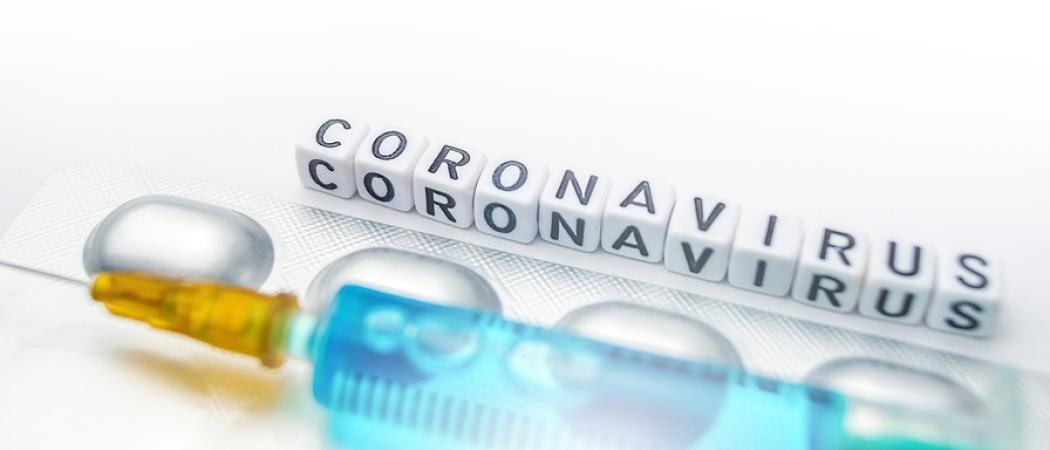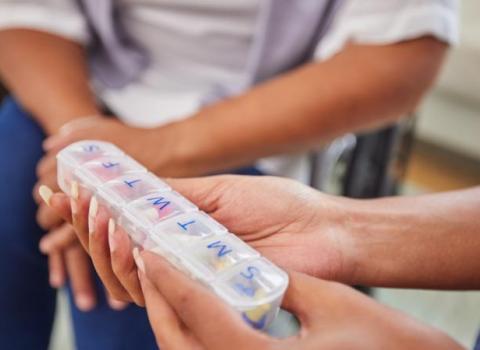Selected teams will work on epidemiology, diagnostics, treatments and vaccines

Two of 17 projects selected by the European Commission in its first research call to tackle COVID-19 are developing vaccines against the disease.
The two vaccine projects are led by researchers at Karolinska Institutet, Sweden’s top medical university and AdaptVac, a Danish biotech start-up.
Karolinska researchers Matti Sällberg and Gustaf Ahlén plan to start testing their vaccine candidate in animal models within a couple of weeks and hope to be able to begin the first trials in COVID-19 patients in 2021 at the Karolinska University Hospital.
With the EU grant, the project, called Opencorona, now has “a large part” of the money needed to come up with a vaccine candidate and see it through a phase I clinical study. “It is a relief to know that we are now financed all the way to studies in humans,” said Sällberg.
For the second vaccine project, Prevent-nCoV, AdaptVac has been awarded a €2.7 million grant to apply its synthetic virus-like particle technology. In common with a number of companies that are now turning their hands to developing COVID-19 vaccines, AdaptVac has previously been applying the technology to cancer vaccines. It aims to complete safety and efficacy testing of a COVID-19 vaccine within 12 months.
“We strongly believe that this technology will be a key player in global emergencies, such as the COVID 19 epidemic” said AdaptVac CEO Wian de Jongh.
Three projects at Karolinska
In addition to the vaccine project, Karolinska researchers have won two other grants from the EU’s pop-up call, totalling €9 million for the university. The funds are to be split equally between the three teams and will cover a period of two years.
Researchers Qiang Pan Hammarström, Harold Marcotte and Lennart Hammarström will lead a project on a passive immunotherapy against the new coronavirus, based on antibodies found in blood of recovered COVID-19 patients.
“We believe that antibodies represent a weapon of choice to treat the disease and prevent continued spread of the virus globally,” Pan Hammarström said.
At Karolinksa’s department of microbiology, tumour and cell biology, Benjamin Murrell, Gerald McInerney and Gunilla Karlsson Hedestam will work on the development of antibodies that could block the virus from infecting cells.
The researchers have started working on animal models and hope to identify antibody candidates that could be used for treating COVID-19 patients. “Access to an arsenal of efficient anti-viral antibodies will be important to help control the spread of [COVID-19],” Murrell said.
Pandemic modelling
The second largest consortium announced by the commission, Exscalate4CoV, led by the Italian pharmaceutical company Dompe farmaceutici SpA, will resolve the 3D structures of essential viral proteins, which will then be used to generate computer models of likely future mutations of the virus, and as the basis for in silico screening of compound libraries (either from repurposing libraries or from proprietary or commercial compound libraries).
The researchers will use the Exscalate supercomputing platform, which can process three million molecules every second and has a database of 500 billion molecules.
The protein structure lab of a former European Research Council grantee, Marcin Nowotny is one of the 17 partners in Exscalate4CoV. Nowotny and his team in Warsaw will work on the crystal structure of functional proteins in the novel coronavirus and compare them to other viral proteins. “Drug development is very tricky, but if we are lucky, we may be able to find a substance which can be repurposed, which we know is safe in humans, and test it in patients,” Nowotny said.
Epidemiology
A team of researchers at the University of Antwerp have won an award for the Recover project in which they will work on a survey to understand the impact of COVID-19 on EU citizens, a study on household transmission of the disease and a study how children contribute to the spread of the virus. The aim is to draw up recommendations for the EU on ensuring the safety of health workers during the epidemic.
In Finland, the Hanken School of Economics has brought together 11 partners from six countries to work on Heros, a project that aims to improve the response to the virus outbreak. The researchers will use the €2.8 million grant to come up with better guidelines for crisis governance and public health emergencies.
A total of 89 partners from across Europe are involved in the projects announced by the commission. The full list is available here.





 A unique international forum for public research organisations and companies to connect their external engagement with strategic interests around their R&D system.
A unique international forum for public research organisations and companies to connect their external engagement with strategic interests around their R&D system.